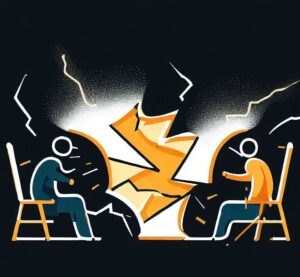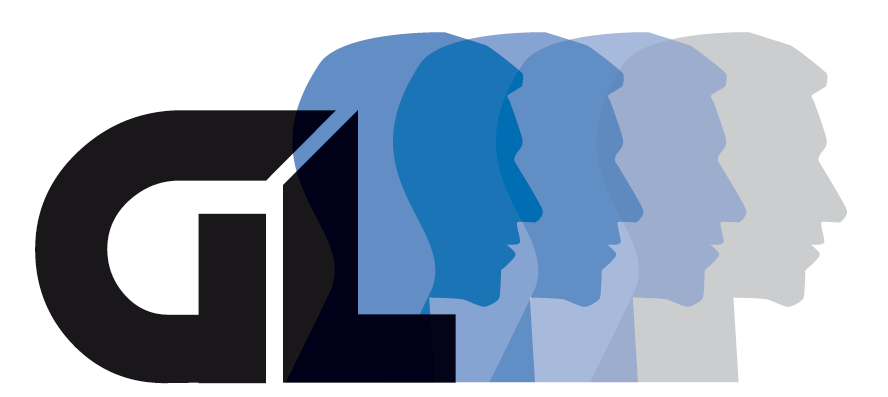On the complex journey of life, dialogue is the bridge that connects people, cultures, and perspectives, allowing vital exchange, negotiation, and resolution of issues. Facilitating the convergence of contrasting perspectives, dialogue is a powerful tool for breaking barriers and encouraging mutual understanding.
The Role of Dialogue in Breaking Barriers

Effective dialogue plays an instrumental role in resolving international conflicts, bridging polarized viewpoints within communities, systems, or personal relationships, and offering a platform for transformative change. One prominent example of the power of dialogue is the Northern Ireland peace process. This longstanding conflict, which had been marked by violence, political deadlock, and severe discord, was significantly eased thanks to open dialogue.
Dialogue becomes particularly crucial in a world fraught with stereotypes and prejudiced narratives. Often, these preconceived notions and biases are deep-seated and internalized over time, which leads to a lack of understanding and empathy for the ‘other.’ Dialogue plays a fundamental role in challenging such prejudices. It forms the backbone for peaceful cohabitation by providing a platform where conflicting parties can openly speak and listen while seeking common ground.
Seeking dialogue is making a conscious decision to challenge our own perspectives and prejudices. It extends beyond merely listening or speaking; it involves understanding the depths of other viewpoints, fostering empathy, and suspending judgments. Effective dialogue requires active listening, which impels us to see beyond our own paradigms and biases and open ourselves up to other perspectives.
For dialogue to effectively break barriers, it must uphold certain core values. It should be honest, respectful, and reciprocal. Everyone should feel heard, and no voice should be undermined. Often, dialogue may not immediately lead to agreement; however, it paves the way for mutual restorative understanding and respect in conflict resolution.
Dialogue extends beyond the verbal. Nonverbal cues like facial expressions, gestures, and postures also significantly contribute to fostering understanding and maintaining open communication channels. Reading and interpreting these nonverbal cues accurately can enrich the dialogue process and help overcome barriers effectively.
Dialogue in its truest form can serve as a powerful tool to challenge prejudices, promote understanding, and foster constructive connections. When applied effectively, it paves the way for peaceful coexistence and collaborative problem solving in societies, systems, and relationships.
The Importance of Dialogue in Encouraging Understanding
Going beyond the boundaries of standard communication, dialogue serves as a means to explore deeper levels of interpersonal connection and understanding. Its superiority lies in the demands it places on those involved; it requires empathy, respect, and a certain degree of vulnerability. Unlike debates, which are often colored by competitiveness and a pursuit to prove one’s argument as superior, dialogues are rooted in co-operation. This is not merely about hearing or responding but understanding the different perspectives involved.
The sharing of experiences is a key component of effective dialogue. This exchange allows those involved to broaden their array of perspectives and challenge their inherent beliefs. Through this, one can gain a deeper comprehension of the ‘other.’ These coupled together foster a sense of shared reality, which further strengthens the bond between dialogue participants and spurs mutual understanding.
The psychological implications of dialogue are vast. It serves as a tool for healing, mending the social fabric fragmented by prejudices, hostility, or historical conflicts. It nurtures empathy, understanding, and a sense of shared humanity. It also builds trust, therefore, facilitating positive interpersonal and societal relationships.
A concrete illustration of dialogue’s remarkable effect is the Truth and Reconciliation dialogues in post-apartheid South Africa. These public meetings were initiated to bear witness to, record, and in some cases, grant amnesty to the perpetrators of crimes relating to human rights violations during the apartheid era. This process was fundamental in fostering understanding between the oppressed and their oppressors, encouraging restorative justice, and paving the way for societal healing on a national scale.
To genuinely promote understanding, dialogues need to follow certain principles. They should be inclusive – every voice matters and every perspective has its place. They should be patient – genuine understanding takes time and cannot be rushed. Lastly, they should be void of any ambition to ‘win’ – the aim is to understand, not to prove oneself right. Dialogues should also inspire introspection, critical self-reflection, and a willing readiness to change and grow.
Importantly, dialogue can be a transformative tool for understanding if employed effectively. Recognizing its power and incorporating it into our personal and societal interactions can lead to enhanced empathy, a broader worldview, and a richer appreciation for the diverse perspectives that color our shared human narrative.
Harnessing the Power of Dialogue in Everyday Life

At a grand scale, dialogue powerfully bridges divides, resolves geo-political conflicts, and remedies societal ills. However, its power and effectiveness are not just limited to these large-scale issues. In fact, dialogue can be most transformative when rooted in the fine grain of everyday life. We can harness its potential within our personal relationships and professional environments, leading to more insightful, empathetic, and harmonious interactions.
In the landscape of personal relationships, communication is critical. However, dialogue, being an enhanced form of communication, allows families, friends, and partners to express feelings more clearly, understand one another more deeply, and resolve disagreements more effectively. It allows for the expression of vulnerability and creates a safe space for sharing. This leads to authentic connections, as individuals feel heard and understood by each other. By understanding different perspectives, families can strengthen bonds, manage conflicts smoothly, and create an overall environment of harmony and acceptance.
In professional settings, dialogue can prove equally transformative. Team dynamics improve significantly when open dialogue is encouraged. It allows for the free exchange of ideas, innovative problem-solving, and cooperation between team members bringing disparate skills and perspectives. By fostering greater understanding among team members, shared goals become more attainable. Furthermore, dialogue allows for the creation of safe, inclusive spaces where people feel valued and respected. Such spaces encourage diversity of thought, leading to a more innovative and enriched work environment. They also contribute to higher job satisfaction and employee morale.
Change affected through dialogue may be gradual and require persistent effort. This is simply because breaking down preconceived notions and biases,introducing new perspectives, and fostering understanding is a process. Nonetheless, the power of consistent dialogue cannot be underestimated. Not just monumental, sweeping changes, but even nuanced shifts in understanding, respect for differing perspectives, and healthier communication habits can tangibly enhance personal relationships and professional environments.
The power of dialogue is universal and can be harnessed in all aspects of everyday life. From personal relationships to professional environments, it fosters understanding, builds trust, and contributes to holistic well-being. The beauty of dialogue is that it scales – from resolving international conflicts to mending a personal relationship, its impact is profoundly transformative.
The Future of Dialogue: Digital Platforms and Virtual Reality
As we steadily march into a digital age, dialogue as a mode of communication and understanding is evolving. The rise of online communication mediums, including social media platforms and interactive chat applications, have created new avenues for dialogue to take place. This shift in medium brings an array of opportunities and challenges in maintaining meaningful and effective dialogue.
Digital platforms have the power to connect people across geographical, cultural, and social divides instantly. This connectivity can breed broader dialogues, bringing together a dynamic blend of perspectives that would not typically intersect in physical spaces. This connectivity fosters a deeper insight into global issues, allowing individuals to understand differing perspectives and experiences that reach far beyond their immediate environment.
Accompanying these opportunities are unique challenges. Online dialogue can often be derailed by the lack of physical cues that usually guide face-to-face conversations. Non-verbal cues such as tone, body language, and facial expressions are missing in most digital communications, which can lead to misinterpretation and miscommunication. Additionally, the relative anonymity on the internet can result in cyberbullying or trolling, disrupting genuine dialogue. Furthermore, digital platforms can often give rise to ‘echo chambers,’ wherein users are continuously exposed to and interact with individuals whose viewpoints align with their own, thereby limiting exposure to diverse perspectives and stifering growth of understanding.
One of the exciting innovations in the digital realm is Virtual Reality (VR) which holds immense potential for enriching the dialogue experience. VR’s interactive and immersive nature can potentially transcend the boundaries of traditional digital communications by simulating face-to-face interactions better. It can provide a cooperative space where bodily and visual cues can be incorporated into the dialogue, reducing instances of miscommunication. By bridging this gap, VR can potentially replicate the intimacy and understanding fostered in physical dialogues.
VR offers the possibility of immersive role-play scenarios. These can provide empathy-building experiences that allow individuals to witness and experience life from various perspectives. This firsthand experience can naturally generate deeper understanding and empathy, unparalleled by any other medium.
Digital platforms and VR technologies present promising potential for fostering dialogue, while presenting their own unique challenges. However, with careful utilization, they could reshape the way dialogue is conducted and encourage broader understanding in ways previously inconceivable. As the digital age advances, the importance of dialogue remains, as does the continuous need for its adaptation and evolution.
